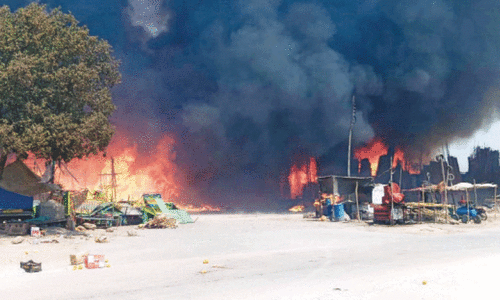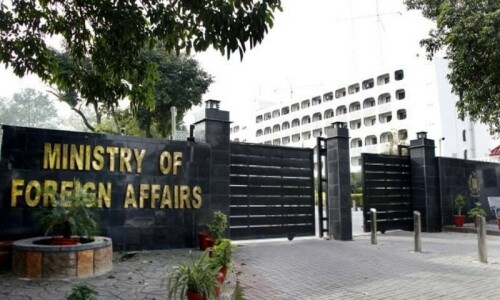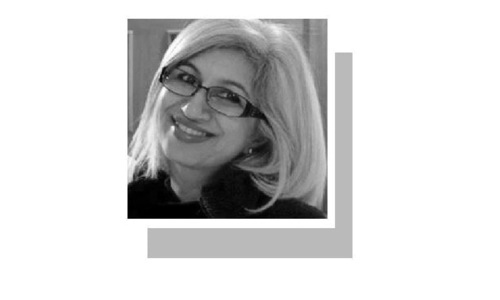KARACHI: Families of the people killed in last month’s Pakistan International Airlines (PIA) plane crash on Saturday raised serious questions over the process of identification of bodies and the handling of the remains of their loved ones by a forensic laboratory of the Sindh government, putting the whole exercise under serious doubt.
Ninety-seven of the 99 passengers and crewmembers of the PIA flight, PK-8303, were killed when the plane crashed in a Model Colony area on May 22. Later, a teenage girl, who suffered burn wounds on the ground, also died.
They also blamed the International Centre for Chemical and Biological Sciences (ICCBS) of the University of Karachi for allegedly mishandling the very sensitive and human issue while casting serious doubts on its performance and results of their DNA examination.
Speaking at a press conference at the Karachi Press Club, the families of the victims demanded the federal and provincial authorities intervene and fix the problem.
They said that a majority of the bodies were already buried but still they could be identified through already available samples and their identification could be fixed so their families could meet some solace.
Relatives praise swift, polite response of Punjab forensic lab
“I lost my whole family [wife and three kids] in the tragedy,” said Arif Iqbal. “Was that not enough that we were put in another stressful task of identification? We seriously doubt the results of the Karachi University examination. The families were moving from one place to another to face humiliation amid a lack of coordination among the institutions and officials.”
Role of Punjab forensic lab lauded
To strengthen his claims, he cited several episodes during the exercise and in one of them several families were informed to receive the same body.
He lauded the role of the Punjab Forensic Science Laboratory, which he said came up with a swift and polite response every time.
“But they [Punjab Forensic Science Laboratory] were denied all access and forced to return without completing the job leaving us to rely only on Karachi University,” he said.
Ghazal Baig, who lost her brother Abdul Waheed Baig in the tragedy, turned emotional while narrating the ordeal of her family during the process of identification of their loved one.
“My mother, who was already in a state of shock and trauma, was being treated as a beggar and humiliated time and again only to identify her son and bury his remains,” she said.
One day, she said, her family was informed in the middle of the night about the identification of her brother’s body and next day it was handed over to someone else.
She also regretted the way KU handled the sensitive task.
The University of Karachi last year claimed to have set up a “state-of-the-art” DNA forensics and serology laboratory. Amid much media fanfare in August 2019, ICCBS director Prof M. Iqbal Choudhary told a press conference that this was the first facility of its kind in Sindh.
“It is fully equipped to provide all kinds of DNA and serology analysis and testing services and has the capacity to analyse 100 cases in a month,” he had said.
Prof Chaudhry said the Sindh government had provided Rs220 million for the facility, which had been set up in six months. However, the laboratory seems to be falling short of expectations in its first major test.
Mohammad Mubeen, who lost his sister-in-law in the crash, said that the KU lab had not only taken too much time for the process but also “misguided” the family.
“We contacted the Punjab laboratory and according to the results of their examination, the body of my sister-in-law was being handed over to someone else,” he said. “Upon intervention, that family also cast doubts and they also denied receiving the body. It’s a matter of very serious nature. We build institutions with multi-million rupees of the taxpayers’ money. They are our institutions but unfortunately they fail us every time we need them badly.”
Published in Dawn, June 14th, 2020














































